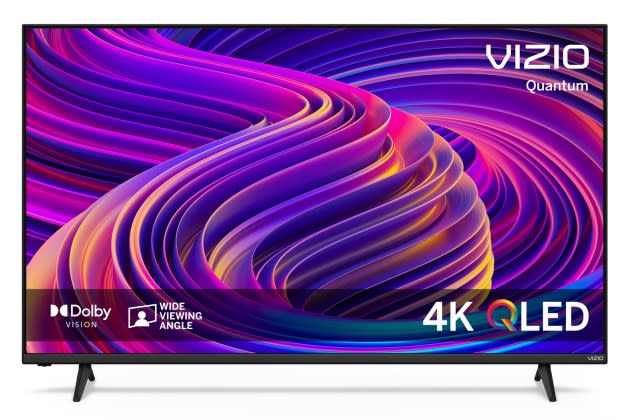Walmart Acquiring Smart TV Maker Vizio for $2.3 Billion to Bulk Up Advertising Business

Vizio is getting snapped up by Walmart in a deal worth $2.3 billion, as the U.S.’s biggest retailer looks to break into into connected-TV advertising.
The companies announced Tuesday (Feb. 20) that they have entered into an agreement for Walmart to acquire Vizio, a leading seller of value-priced TV sets and connected TV ads in the U.S. The deal would make Walmart a significant player in connected TV advertising, competing with players including Roku, Amazon, Google/YouTube and Samsung Ads.
More from Variety
Walmart Eyeing Deal to Buy Vizio for More Than $2 Billion: Report
Walmart's Black Friday Deals Are Already Live - And They're Better Than Ever
The combination promises to accelerate Walmart’s US. advertising business, called Walmart Connect, by bringing together Vizio’s advertising business business with Walmart’s reach and resources. Walmart Connect revenue increased 22% year over year for the quarter ended Jan. 31 (but the company did not report dollar figures). Globally, Walmart’s ad revenue grew by 28% to $3.4 billion for its 2024 fiscal year ended in January. According to Walmart, the deal for Vizio also will let the retailer “connect with and serve its customers in new ways” including through “innovative television and in-home entertainment and media experiences.”
“Put simply, the deal would combine an emerging retail media/direct response powerhouse [in Walmart], with [Vizio’s] vertically integrated, connected TV/branding advertising business (including data) to create a full-funnel offering for advertisers,” New Street Research analyst Dan Salmon wrote in a note. For Walmart, the deal “would have the added benefit of creating an offering that is more attractive to non-endemic advertisers (i.e. beyond third-party sellers transacting on Walmart Marketplace)” to those that don’t sell through Walmart but want to reach viewers on Vizio TVs.
The deal is subject to regulatory approvals and other closing conditions. Vizio’s board has unanimously approved the transaction, and shareholders owning 89% of the voting shares in the company have also OK’d the deal. According to Vizio, no other stockholder approval is required to complete the transaction.
Irvine, Calif.-based Vizio was founded in 2002. Today, Vizio counts more than 500 direct advertiser customers, including “many of the Fortune 500.” Vizio’s Platform+ business, which consists largely of its ad business, now accounts for a majority of the company’s gross profit. Vizio’s device ecosystem and SmartCast operating system have amassed more than 18 million active accounts to date.
“We believe Vizio’s customer-centric operating system provides great viewing experiences at attractive price points,” Seth Dallaire, EVP and chief revenue officer, Walmart U.S., said in a statement. “We also believe it enables a profitable advertising business that is rapidly scaling. Our media business, Walmart Connect, is helping brands create meaningful connections with the millions of customers who shop with us each week. We believe the combination of these two businesses would be impactful as we redefine the intersection of retail and entertainment.”
Vizio founder and CEO William Wang said, “We believe this is the ideal next chapter in Vizio’s history. By bringing our capabilities and resources together, we’ll drive innovation and create even more value for our customers. Walmart’s approach is aligned with Vizio’s mission and vision, and our technology will help bring a scaled, connected TV advertising platform to Walmart Connect. This transaction delivers immediate and compelling value to Vizio stockholders and is a true testament to the hard work of the entire Vizio team.”
Walmart is paying $11.50 per share in cash for Vizio, a 21% premium over the $9.53 closing price Friday (Feb. 16). Upon completion of the deal, Vizio’s Class A common stock will no longer be publicly listed. The companies didn’t say when they anticipate the deal to close.
Walmart said that because of certain “transaction-related costs associated with the acquisition, including for talent retention and technology integration,” the company expects the transaction to be slightly dilutive to earnings per share in the near term. Following the completion of the transaction, Vizio’s business will be reported as part of the Walmart U.S. segment.
In 2016, Chinese tech company LeEco announced a deal to buy Vizio for $2 billion. But that fell apart the following year after China blocked the deal amid a larger move to restrict major overseas acquisitions by Chinese firms. In 2017 Vizio sued LeEco, alleging LeEco had failed to pay $60 million of a $100 million breakup fee; the companies later settled the dispute for undisclosed terms.
Best of Variety
Sign up for Variety’s Newsletter. For the latest news, follow us on Facebook, Twitter, and Instagram.

